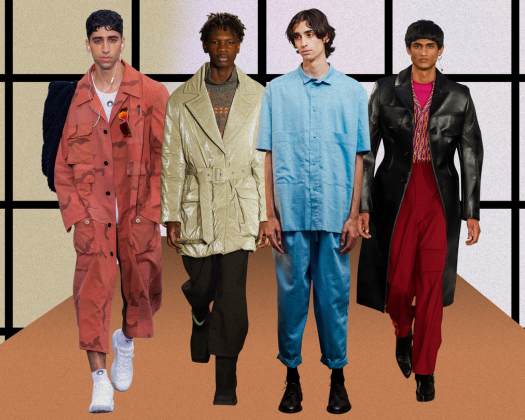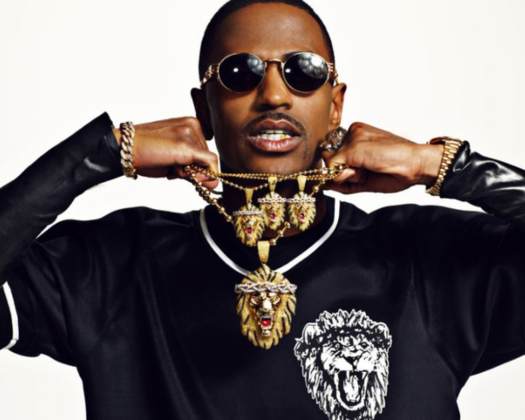Sustainable Swag: Eco-Conscious Fashion for the Style-Savvy Dude
In an era where environmental consciousness is at the forefront of global conversations, the fashion industry is experiencing a transformative shift towards sustainability. This shift is not only driven by environmental concerns but also by an increasing demand from consumers who are becoming more mindful of their choices. In this blog post, we'll explore the world of sustainable fashion with a focus on eco-conscious style for the modern, style-savvy dude.
The Environmental Impact of Fashion:
Before delving into the realm of sustainable swag, it's crucial to understand the environmental impact of traditional fashion. The fast-paced nature of the industry, fueled by trends that come and go, has led to an overconsumption of resources, excessive waste, and detrimental effects on the environment. From water-intensive cotton cultivation to chemical-laden dyeing processes, the fashion industry has left a sizable carbon footprint.
Fortunately, a growing number of fashion brands are reevaluating their practices to align with eco-friendly principles. These brands are championing sustainability by prioritizing ethical sourcing, using eco-friendly materials, and implementing responsible production processes.
Eco-Friendly Fabrics for Stylish Dudes:
The first step towards building a sustainable wardrobe is choosing the right materials. Fortunately, there's a burgeoning selection of eco-friendly fabrics that not only look great but also minimize the environmental impact. Here are some sustainable fabrics perfect for the style-savvy dude:
Organic Cotton:
Grown without harmful pesticides and synthetic fertilizers, organic cotton is a cleaner alternative to conventional cotton.
Look for brands that use organic cotton for their shirts, tees, and denim to embrace a sustainable casual style.
Hemp:
Hemp is a versatile and durable fabric that requires minimal water and no pesticides to grow.
Stylish hemp-based shirts, pants, and jackets are making waves in sustainable fashion circles.
Tencel (Lyocell):
Tencel, a fabric made from sustainably sourced wood pulp, is known for its softness and breathability.
Tencel shirts and trousers offer a sleek and polished look while being environmentally friendly.
Recycled Materials:
From recycled polyester to upcycled denim, many brands are incorporating recycled materials into their collections.
These materials reduce the demand for virgin resources and give a second life to discarded items.
Sustainable Style Icons:
To inspire your eco-conscious wardrobe journey, let's take a look at some style-savvy dudes who are leading the way in sustainable fashion:
Orsola de Castro:
The co-founder of Fashion Revolution, Orsola de Castro is an advocate for sustainable fashion and has an effortlessly chic style that incorporates vintage and upcycled pieces.
Pharrell Williams:
Pharrell is not only a musical icon but also a fashion influencer promoting sustainable fashion. His collaboration with G-Star RAW resulted in the "Raw for the Oceans" collection made from recycled ocean plastic.
Leonardo DiCaprio:
As an environmental activist, DiCaprio often showcases his commitment to sustainability through his wardrobe choices, opting for eco-friendly brands on the red carpet.
Building a Sustainable Wardrobe:
Now that we've explored the eco-conscious materials and gained inspiration from sustainable style icons, let's discuss practical steps for building a sustainable wardrobe:
Invest in Timeless Pieces:
Opt for classic, timeless pieces that won't go out of style. This approach minimizes the need for frequent wardrobe updates.
Quality Over Quantity:
Choose high-quality garments that are built to last. Quality pieces may have a higher upfront cost, but they pay off in terms of durability and longevity.
Secondhand and Vintage Shopping:
Embrace the charm of secondhand and vintage shopping. Thrifting not only reduces your carbon footprint but also allows you to discover unique pieces with character.
Capsule Wardrobe Approach:
Adopt a capsule wardrobe approach by curating a collection of versatile items that can be mixed and matched. This reduces the need for excess clothing and promotes a minimalist lifestyle.
Importance of Sustainable Fashion
Sustainable fashion has emerged as a critical response to the environmental and ethical challenges posed by the traditional fashion industry. Its importance extends far beyond mere trends, resonating with a global movement towards responsible consumption. Here are key reasons highlighting the significance of sustainable fashion:
Environmental Conservation:
Sustainable fashion prioritizes eco-friendly practices, aiming to minimize its ecological footprint. By utilizing renewable resources, embracing ethical manufacturing processes, and reducing waste, sustainable fashion contributes to the preservation of our planet's delicate ecosystems.
Reduced Carbon Footprint:
Conventional fashion production is notorious for its substantial carbon emissions. Sustainable fashion seeks to mitigate this impact by employing environmentally conscious materials, sustainable farming practices, and energy-efficient manufacturing, thereby lessening its overall carbon footprint.
Ethical Treatment of Workers:
Many fast fashion brands have faced criticism for exploitative labor practices in pursuit of low-cost production. Sustainable fashion promotes fair wages, safe working conditions, and ethical treatment of workers. This commitment to social responsibility helps build a more equitable and humane fashion industry.
Resource Preservation:
The fashion industry is notorious for its voracious appetite for resources, from water-intensive cotton cultivation to chemical-laden dyeing processes. Sustainable fashion champions resource efficiency, encouraging the use of recycled materials, upcycling, and innovative design techniques that extend the lifespan of garments.
Consumer Awareness and Empowerment:
Sustainable fashion empowers consumers by encouraging thoughtful and informed purchasing decisions. As awareness grows regarding the environmental and social impact of fashion, consumers are becoming advocates for change, supporting brands that align with their values and driving the industry towards more sustainable practices.
Long-Term Economic Viability:
The short-lived nature of fast fashion has economic implications, contributing to a throwaway culture that undermines long-term economic sustainability. Sustainable fashion, with its emphasis on durability and timeless design, promotes a more economically viable model that reduces the frequency of purchases and encourages a shift towards quality over quantity.
The Bottom Line
Sustainable swag is no longer a niche concept but a growing movement that aligns with the values of the modern, style-savvy dude. By choosing eco-friendly fabrics, drawing inspiration from sustainable style icons, and adopting mindful shopping habits, you can build a wardrobe that not only looks good but also contributes to a more sustainable future. As the fashion industry continues to evolve, embracing sustainability is not just a trend—it's a commitment to a more responsible and stylish lifestyle. So, gentlemen, let's redefine swag with a conscience and stride confidently into a future where fashion and sustainability go hand in hand.









